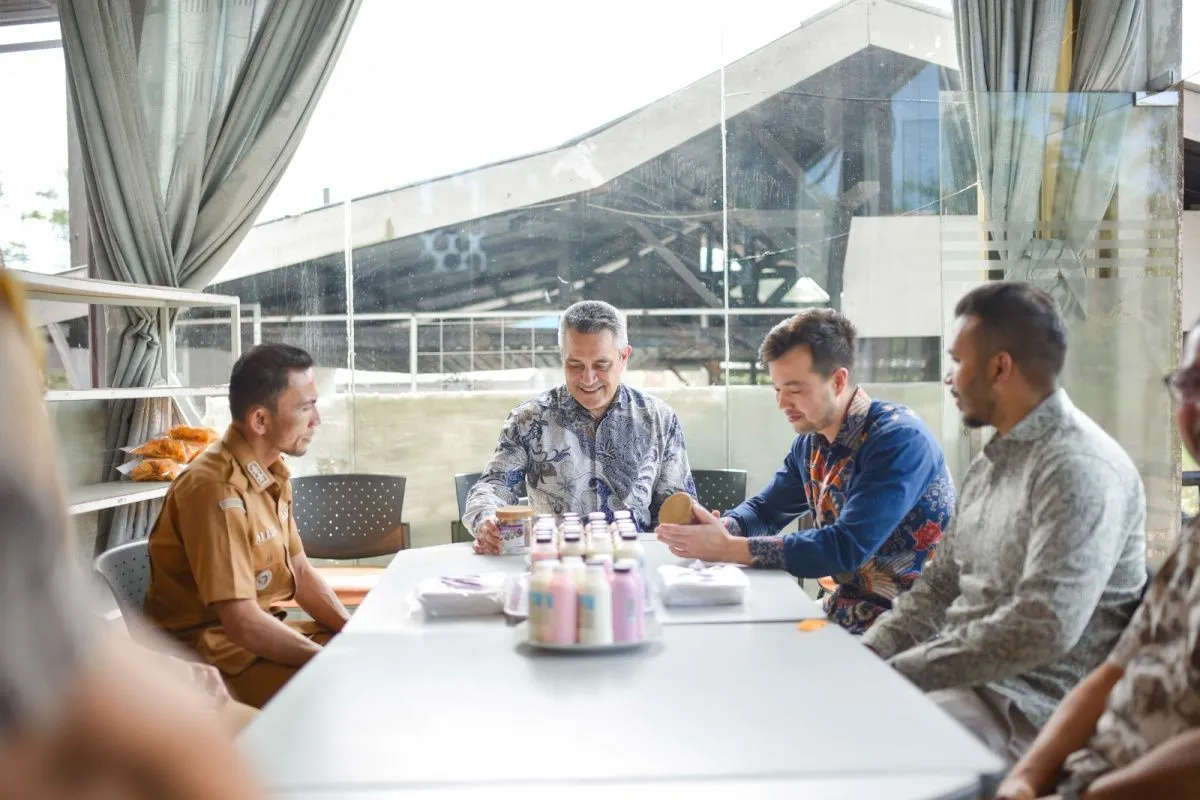Strengthening Indonesia’s Dairy Sector Through Strategic Partnerships
Fonterra, the New Zealand-based multinational dairy cooperative, is deepening its commitment to Indonesia’s agricultural landscape by enhancing its long-running dairy development program. Recently announced in Yogyakarta, the program aims to empower local dairy farmers, improve milk quality and quantity, and ensure long-term sustainability for the industry.
The Fonterra dairy development initiative is not new, but its latest expansion is significant. It reflects a growing recognition of Indonesia’s potential as both a milk-producing and milk-consuming country. Despite being one of Southeast Asia’s largest populations, Indonesia still imports over 80 percent of its dairy needs, indicating a substantial gap in domestic production.
Through capacity-building workshops, modern farming practices, and strategic collaborations with local cooperatives, Fonterra aims to bridge this gap — not just for economic gain but as part of its long-term corporate social responsibility and sustainability goals.
This move aligns with Indonesia’s national agenda to achieve greater food security and reduce import dependency in essential commodities, including fresh milk and dairy products.
Empowering Dairy Farmers Through Knowledge and Technology
At the heart of the Fonterra dairy development program is a strong emphasis on farmer education and the application of best practices in dairy farming. The program focuses on three core areas: animal nutrition, cow health, and milk handling techniques. Farmers are trained in these areas through hands-on workshops, in-field demonstrations, and long-term mentorships with experienced dairy advisors.
One of the key challenges Indonesian farmers face is low milk productivity per cow, often due to poor feeding, inadequate shelter, and lack of veterinary access. Fonterra’s model tackles these issues head-on. By introducing feed formulation methods, promoting regular veterinary checkups, and offering training on stress-free milking techniques, the cooperative helps improve both cow welfare and milk yield.
The program also introduces modern technologies, such as mobile herd tracking systems and milk cooling equipment, to ensure that milk quality meets international standards. By integrating these innovations into everyday operations, local farmers can improve the value of their product and increase access to premium markets.
According to Fonterra’s Indonesian team, over 300 dairy farmers in Yogyakarta and Central Java have already benefitted from these initiatives. Their testimonies reflect significant improvements in cow health, milk output, and household income.
Sustainability and Long-Term Commitment to Local Communities
The Fonterra dairy development program is not a one-off intervention but part of a long-term strategy to build sustainable dairy ecosystems in Indonesia. Fonterra sources a portion of its milk ingredients from local cooperatives, making it essential that these partners can meet strict hygiene, safety, and sustainability benchmarks.
To that end, Fonterra’s engagement extends beyond the farm. The company collaborates with local universities, agricultural departments, and non-governmental organizations to ensure a holistic development approach. By fostering local innovation and creating training hubs, the program helps build a network of skilled individuals who can sustain the sector’s growth over time.
Fonterra’s commitment also aligns with the United Nations Sustainable Development Goals (SDGs), particularly those related to zero hunger, responsible consumption and production, and climate action. The program promotes environmentally conscious practices such as efficient water use, organic waste management, and rotational grazing to reduce carbon footprint.
Moreover, the dairy development initiative creates ripple effects in the local economy. Healthier cows lead to more milk, which enables farmers to invest in better education for their children, upgrade their infrastructure, and contribute to community welfare.
Indonesia’s Dairy Demand and Economic Potential
Indonesia’s dairy consumption has been growing steadily, driven by a rising middle class, increased health awareness, and the popularity of milk-based products such as yogurt, cheese, and ready-to-drink beverages. Despite this, domestic supply has struggled to keep up due to fragmented farming systems and inadequate investment in rural dairy infrastructure.
The Fonterra dairy development initiative helps unlock the sector’s untapped potential. According to Indonesia’s Ministry of Agriculture, the country currently produces just under one million tons of fresh milk annually, far short of its 2025 target of 3.7 million tons. Programs like Fonterra’s play a critical role in closing this gap by improving per-cow productivity and reducing post-harvest losses.
With growing demand from both urban and rural consumers, the opportunity for Indonesia to strengthen its dairy self-sufficiency is enormous. Strategic interventions from global players like Fonterra provide a blueprint for inclusive growth, blending international expertise with local insights.
Furthermore, with increasing attention on food resilience amid global disruptions, a robust local dairy sector will be crucial for maintaining national food security and protecting Indonesia from price volatility in the global market.
What’s Next for Fonterra and Indonesian Dairy?
As Fonterra continues to scale up its dairy development program, it plans to expand beyond Java into other regions such as West Sumatra, East Nusa Tenggara, and parts of Sulawesi where dairy farming is viable but underdeveloped. The company also plans to collaborate more deeply with the Indonesian government and regional cooperatives to replicate successful models.
Future plans include building demonstration farms, introducing AI-powered livestock monitoring systems, and launching digital platforms that give farmers instant access to expert advice and market data. These steps will help modernize Indonesia’s dairy landscape while fostering greater inclusion and resilience.
While challenges such as climate change, land use constraints, and input costs remain, Fonterra’s long-term presence and evolving strategies offer hope for a sustainable future in the dairy sector.
In conclusion, the Fonterra dairy development program is not just a CSR initiative — it’s a smart, inclusive, and future-focused investment in the people, cows, and communities that will shape Indonesia’s food security. With continued collaboration, innovation, and empowerment, Indonesia’s dairy dream could soon become a self-sustaining reality.
Read More






 Wednesday, 04-02-26
Wednesday, 04-02-26







